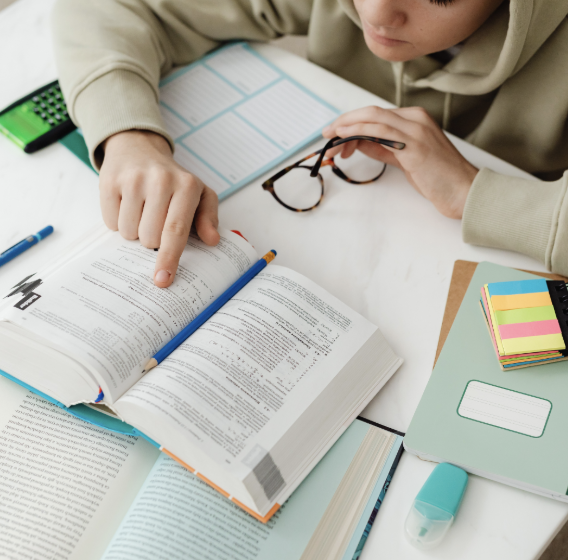
I was able to reflect on what study techniques work best, how to be efficient when working and how to choose an environment where you’ll be most productive.
It’s important to understand what kind of student you are, and use this to build study routines and strategies that best work for you. This can be achieved through using organisational tools such as planners and checklists to keep track of upcoming tasks and deadlines, and prevent forgetting important work or feeling overwhelmed. It’s also important to remember that different study methods might work for different subjects. For example, practising questions may be great for maths but not so good when memorising an essay. Additionally, using active learning strategies such as summarising, teaching others and self-testing can be super effective for strengthening understanding and improving recall.
Another important aspect of studying to reach maximum potential is efficiency: using your time wisely and making every study session purposeful. This can be achieved through setting clear goals for each session, and planning these ahead of time to ensure everything is completed when needed. This leads to using time-management strategies. You should also minimise distractions during productive periods, which can include putting your phone on do not disturb and moving to a quiet environment. Choosing the right study environment has a huge impact on the quality of your study. You should feel comfortable, have resources easily accessible and be able to concentrate in a quiet space. Using the same study space consistently can increase motivation and reduce stress.
Overall, understanding how you learn best and creating the right study habits can make a huge difference in both productivity and confidence. Reflecting on these skills has reminded me of their importance when achieving high marks and developing long-term academic independence.
Annabelle Molloy

